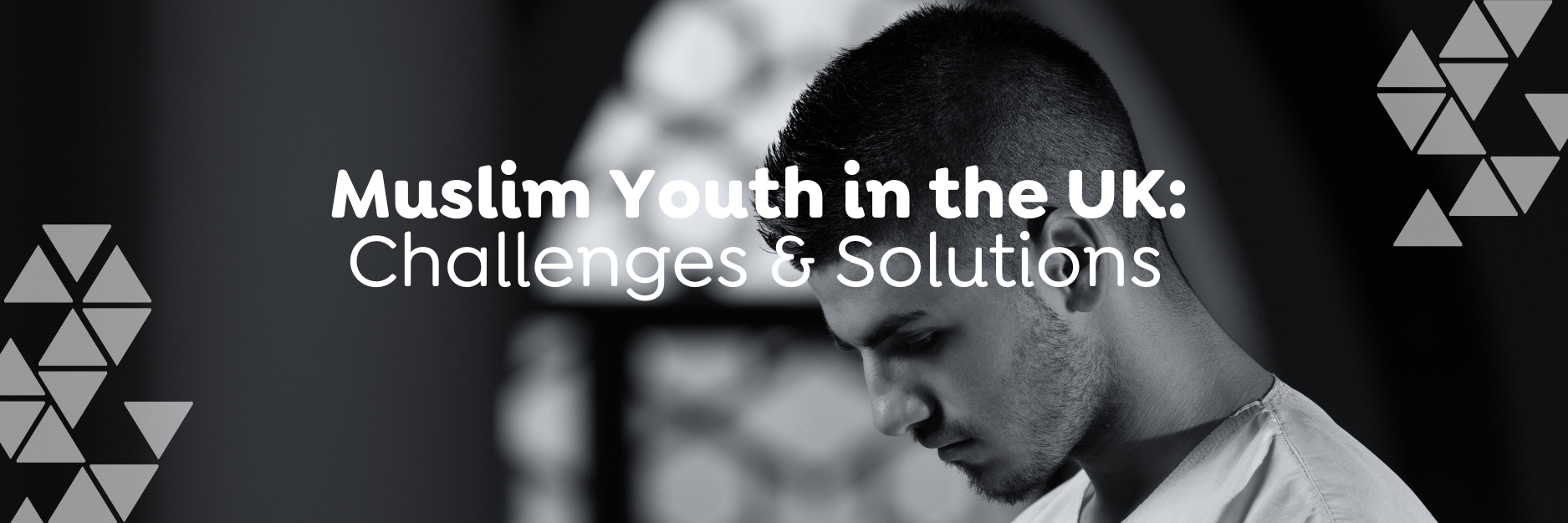Muslim youth in the UK represent a diverse and vibrant group, with different backgrounds, experiences, and aspirations. However, they face unique challenges in a society that is often characterised by cultural and religious differences. Understanding and addressing these challenges is essential for ensuring that Muslim young people can thrive and contribute meaningfully to the broader community. Here, we explore three significant issues facing Muslim youth in the UK today and propose solutions to help them overcome these obstacles.
1. Islamophobia and Discrimination
One of the most pressing issues facing Muslim youth in the UK is Islamophobia and religious discrimination. Muslim young people often find themselves the targets of prejudice, stereotyping, and hostility due to their faith. This can manifest in various forms, from verbal abuse and bullying in schools to discriminatory behaviour in the workplace or even within public spaces. The rise of far-right ideologies and global political tensions also exacerbates negative perceptions of Muslims, further contributing to the marginalisation of young people in this community. 2024 saw rise to Islamicphobic attacks and far right protests, which not only increased fear amongst Muslim communities – lead to a rise in arrests and lengthy prison sentences.
Solution: Education and Awareness Campaigns
Combating Islamophobia begins with education. Schools, universities, and community organisations must actively promote cultural awareness and tolerance. Programs that teach young people about different cultures and religions, including Islam, can help dispel misconceptions and break down harmful stereotypes. Additionally, institutions should implement anti-discrimination policies and support systems for Muslim students who experience bullying or harassment. Public campaigns to highlight positive stories of Muslim contributions to British society can also counter negative narratives and foster a more inclusive environment for all.
2. Identity Struggles and Cultural Integration
Another challenge faced by many Muslim youth in the UK is the struggle with identity. Many young Muslims experience a sense of dual identity, balancing their cultural and religious heritage with the expectations of British society. They often face pressure to assimilate into the dominant culture while maintaining ties to their Muslim traditions. This tension can lead to feelings of confusion, alienation, or conflict, particularly when certain aspects of their identity, such as wearing the hijab or practising daily prayers, are misunderstood or criticised by their peers.
Solution: Fostering a Sense of Belonging
Supporting Muslim youth in navigating their cultural and religious identities requires creating spaces where they can freely express themselves without fear of judgment or exclusion. Youth groups, mentorship programs, and community centres play a vital role in providing these safe spaces. Encouraging open dialogue about identity, both within the Muslim community and with broader society, can help Muslim young people embrace their heritage while feeling connected to their British identity. Schools should also offer more inclusive curricula that reflect the diverse backgrounds of students, helping Muslim youth feel seen and valued.
The ICoB Hub is pleased to announce two sessions specifically for Muslim Youth – Friday’s 6pm-7pm for Boys and Girls (segregated) at ICoB Hub, 291 Highgate Road, Birmingham, B12 8DN.
Salihah Rehman – Our Female Youth Leader reflects on the sessions so far:
“Our youth club is a fun and exciting place where kids can learn, play, and connect with their friends. The evening begins with a short and simple wird (remembrance of Allah SWT), where everyone joins in together to feel closer to Allah SWT. Then, there’s an inspiring and easy-to-understand speech full of stories and lessons to help kids be kind and strong in their faith. After that, the room comes alive with cheerful nasheeds that everyone sings along to. Finally, it’s game time, with activities like bowling pins that get everyone laughing and cheering. To top it all off, there’s delicious food like pasta and pizza for everyone to enjoy, making it the perfect ending to a fun-filled evening!”
If you know someone who would like to benefit from our youth club, contact the admin team on 07932767007.
3. Mental Health and Wellbeing
Mental health is another significant issue for Muslim youth in the UK. The combination of Islamophobia, identity struggles, and social isolation can have a profound impact on their mental wellbeing. Muslim youth may also face challenges accessing mental health services, particularly if they feel that these services are not culturally sensitive or do not understand their specific needs. This lack of support can lead to feelings of isolation, anxiety, depression, and, in some cases, a reluctance to seek help.
Solution: Culturally Competent Mental Health Support
To address the mental health needs of Muslim youth, there is a need for more culturally competent mental health services. Mental health professionals should be trained to understand the unique challenges faced by Muslim young people, including the role of religion in their lives and how faith may influence their approach to mental health. Community-based mental health initiatives that are grounded in Islamic values and traditions could help make support more accessible. Schools should also promote mental health awareness and provide resources for students who may be struggling. Peer-led support groups can create a sense of solidarity, helping young people open up about their struggles in a non-judgmental environment.
Conclusion
Muslim youth in the UK face significant challenges, including Islamophobia, identity struggles, and mental health issues. However, with the right support, these challenges can be overcome. By investing in education, fostering a sense of belonging, and improving mental health services, we can help Muslim young people thrive and contribute positively to society. It is essential that both Muslim communities and wider society work together to create a future where all young people, regardless of their faith or background, have the opportunity to reach their full potential. ICoB aims to become a beacon of light for our youth and to support their journey in a safe and holistic environment, In’Sha’Allah.
Learn more about our facilities of the future here.





